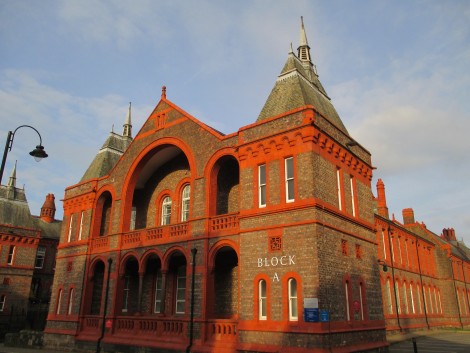 Elle Spencer reports for Liverpool Life magazine about concerns over the University of Liverpool’s links with the arms trade.
Elle Spencer reports for Liverpool Life magazine about concerns over the University of Liverpool’s links with the arms trade.
Students, activists and concerned citizens alike gathered in the Liverpool Guild of Students on Monday to discuss the University of Liverpool’s alleged involvement with the arms trade.
Campaigner Greg Dropkin, who spoke at the meeting and who presented the report “Get Your Bombs Off Our Lawn”, examined links between the University of Liverpool and the arms trade. It is claimed students’ research may be being used to improve weaponry systems that could later be used to commit acts of war.
“This is not just some kind of kid’s game here. The university is helping to design drones and 10 to 15 years later these drones are killing people”, he told the meeting, held by the Liverpool branch of the Campaign Against Arms Trade (CAAT).
The University of Liverpool have insisted they abide by a strict code of research ethics. However, some students and staff have become so concerned over the university’s apparent lack of transparency that they have decided to take a stand and call for action.
Sarah Ali, a Palestinian who worked as a teacher in Gaza, spoke about her loss of education under continual military occupation. She explained how oppressive the 24-hour drone surveillance was, how the continual buzzing felt like “drilling in your brain”. She recalled a time when she allowed her students, aged 8 to 11, to draw during class. Nine out of her sixteen students drew bombs, missiles or similar – “one child drew a dead body”.
Despite receiving several freedom of Information (FOI) Act requests, the University has declined to divulge any information regarding its finacial relations with arms companies over the past five years. In response to the FOI request the University cited protection of the university’s commercial interests and a breach in confidential data as reasons for choosing not to supply the information.
Details requested of the UOL included the total amount the university had received from arms trade companies and the Ministry of Defence, a portfolio statement of their investments in funds and their corrresponding companies, and a confirmation of whether they held any shares in arms trade companies.
According to CAAT, the University of Liverpool provided £17.5 million of funding for military projects between 2001 and 2006.
In response, the university refered to their original response to the FOI response to the FOI request and told Liverpool Life “The University abides by a strict code of ethics, which applies to all of its research projects.”
First published by Liverpool Life magazine